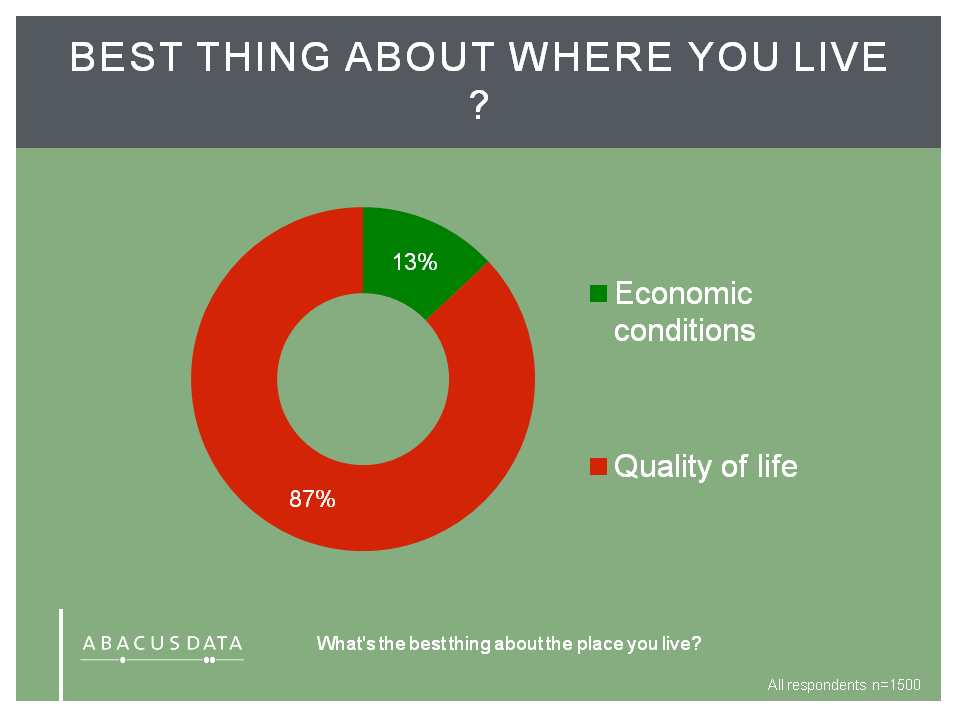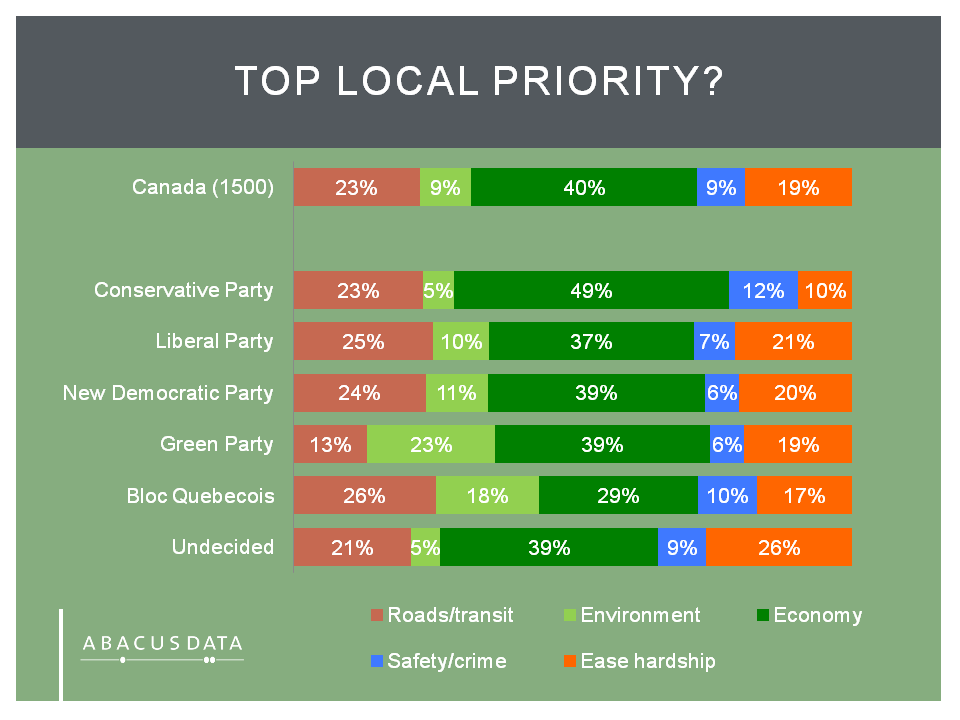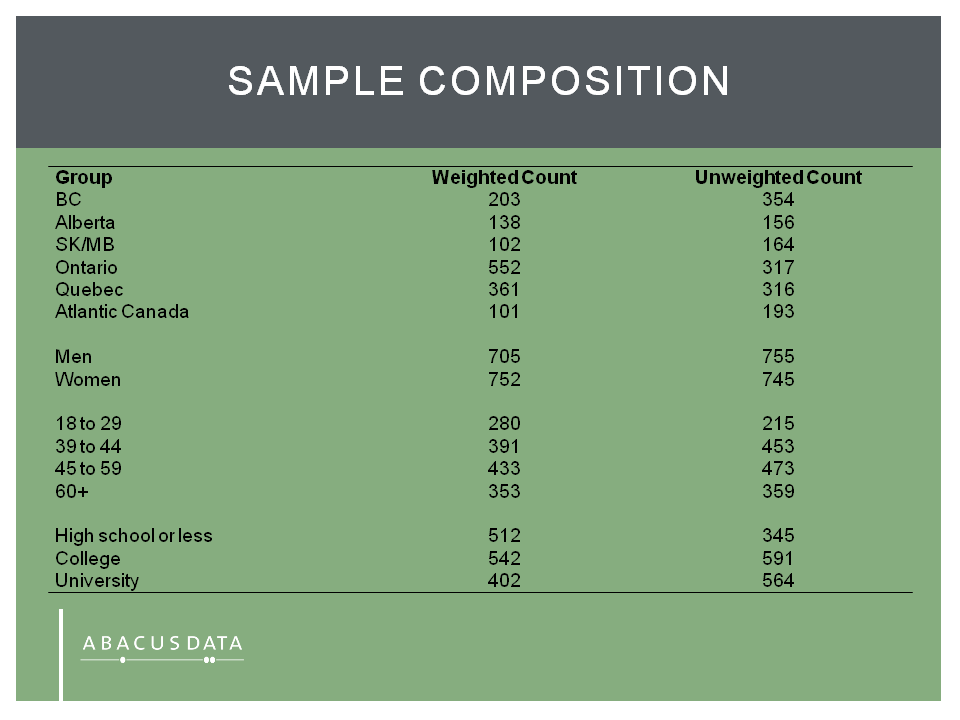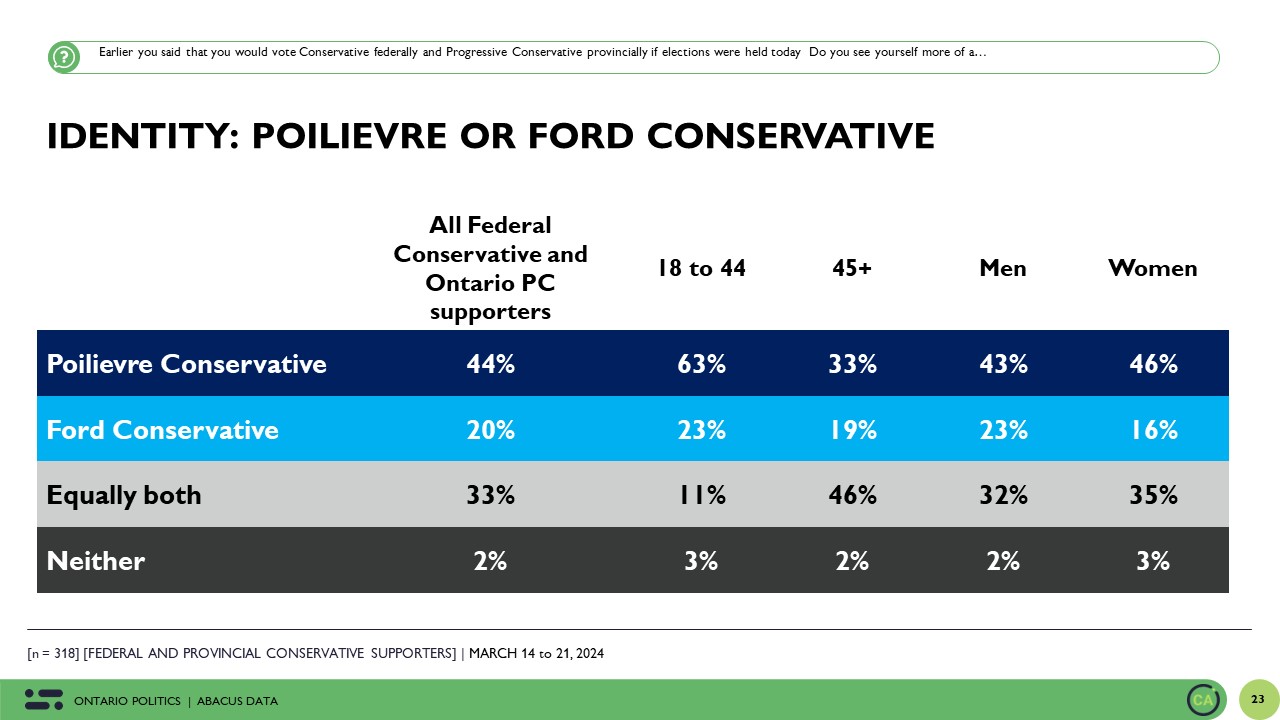We like where we live, especially if it’s Vancouver.
July 6, 2015

We asked 1,500 Canadians at the end of May to tell us about where they live. Here are the highlights:
16% think their community is the “best place in the world to live”. Comparing Canada’s three biggest cities, 30% in Vancouver think they live in the best place in the world, 21% in Montreal, while 12% of GTA respondents feel this way.

21% think they live “one of the best places in Canada”, and 40% said they lived in a “better than average” place. Just one in five think they live in an “average” place, and only 3% said “not a particularly good place.”
When asked what they like most about where they live, 87% said “quality of life” compared to 13% who said it was “economic conditions”. When asked what they would most like to see improved, most said economic conditions (65%) – logical given the current high level of satisfaction with the quality of life.
When asked what they would most like to see improved, the majority said economic conditions (65%) – presumably because of their current high level of satisfaction with the quality of life where they live.



We tested five possible local priorities and asked respondents to pick the most important one. 40% put a focus on the economy, 23% said improving roads and transit, 19% easing hardship, 9% safety/crime reduction and 9% improving the environment.

There were important subgroup differences in priority setting. In Atlantic Canada, there was a much greater importance attached to improving economic conditions. Crime and safety issues were more important in western Canada. Transit and roads were more crucial in urban areas. Easing hardship was a much higher priority among households with the lowest incomes. The environment is given a little more prominence in urban areas and in Quebec. Conservative voters put more emphasis on the economy and crime and less on easing hardship. Green party voters put less emphasis on roads and transit and more on the environment.


The Upshot?
Famously, US House of Representatives Speaker Tip O’Neill is quoted as saying “all politics is local”. Here in Canada, quality of life in local communities is a crucial undercurrent in national politics – it is where people experience a healthy or weak economy, and where they consume public services like health and education.
Three out of four people feel they live in a pretty good place and almost half think they live in one of the best places in the country or in the world. People see quality of life as the best thing about their community, and a healthy economy as a pre-requisite of a satisfying local quality of life.
Political parties and candidates will experience different voter priorities in different regions this fall. The economy will be a fixation for many people, but not equally across the country. In congested urban areas, improving infrastructure matters a lot. Easing hardship finds a bigger market than fighting crime, in every place but the Prairies. The environment finds roughly 1 in 10 people who put it at the top of the priority list.
Abacus Chairman Bruce Anderson quote:
“The most successful politicians know well that Tip O’Neill had it right – that while parties must have key national themes, local candidates must be armed with solutions to local priorities: everything from job creation, to transit, poverty, crime and the environment.
People experience “the economy” where they live, and less as a function of macro economic news. Equally, fiscal balances, tax levels, social spending and economic stimuli are policy ideas evaluated through the lens of what impact they might have, if any, on local conditions.
Voters are drawn to politicians who are dialed in on what makes life great or not so great, in their community. In this unusually competitive election, national leaders may find themselves wanting to spend more time than usual talking up local solutions and making sure their national agendas sound relevant locally. And there’s a remember in these numbers that for most people, a strong economy is more “means” than “end” – and that the outcome people care most about is a more broadly defined good quality of life.”
Methodology
Our survey was conducted online with 1,500 Canadians aged 18 and over from May 28 to May 31, 2015. A random sample of panelists was invited to complete the survey from a large representative panel of Canadians, recruited and managed by Research Now, one of the world’s leading provider of online research samples.
The Marketing Research and Intelligence Association policy limits statements about margins of sampling error for most online surveys. The margin of error for a comparable probability-based random sample of the same size is +/- 2.6%, 19 times out of 20. The data were weighted according to census data to ensure that the sample matched Canada’s population according to age, gender, educational attainment, and region. Totals may not add up to 100 due to rounding.
Sample Composition

Abacus Data Inc.
We offer global research capacity with a strong focus on customer service, attention to detail and value added insight. Our team combines the experience of our Chairman Bruce Anderson, one of Canada’s leading research executives for two decades, with the energy, creativity and research expertise of CEO David Coletto, PhD. For more information, visit our website at http://www.abacusdata.ca/




